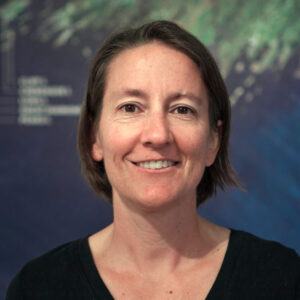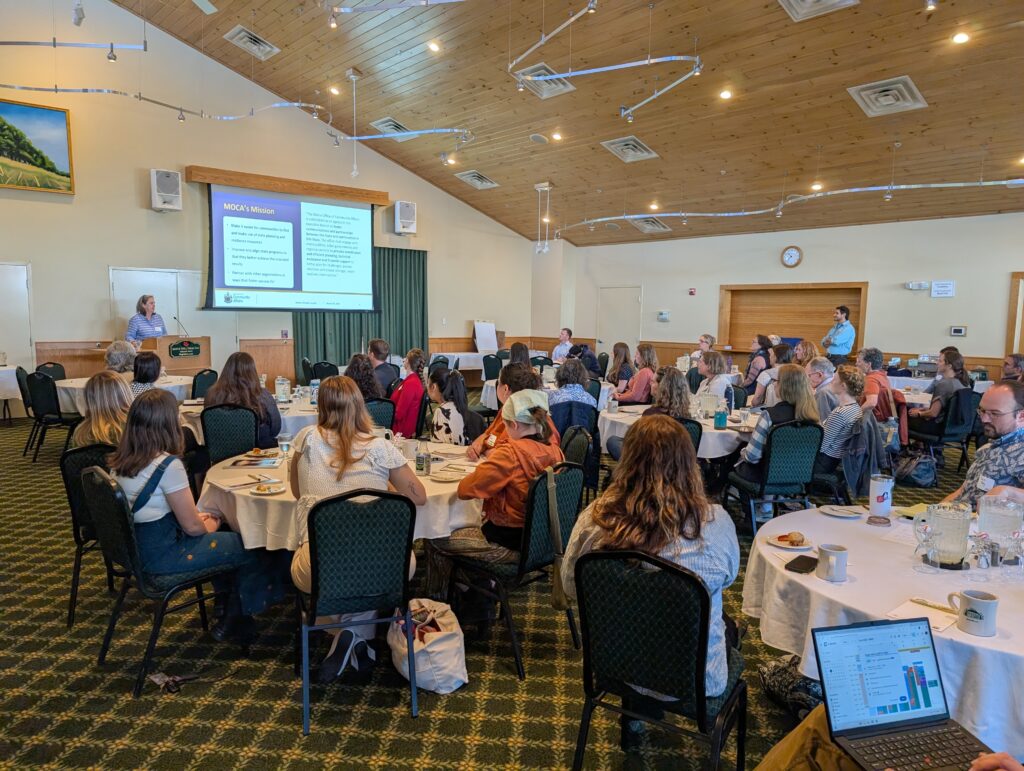
The Maine Climate Change Adaptation Providers Network, known as CCAP, has existed for 15 years through thick and thin alongside Maine’s efforts to address climate change. I attended CCAP’s annual meeting at the Maple Hill Farm in Hallowell on June 3. The last time I was at this venue was in 2019 when Governor Mills announced the Maine Climate Council. The guest speaker at that momentous event was Gina McCarthy, the former Administrator of the Environmental Protection Agency and soon-to-be first White House National Climate Advisor. The positivity at that meeting six years ago was palpable. Now, in 2025, my first thought was briefly, “those were the days.”
Then, enter the power of networks and social connectedness. To quote my favorite science of hope researcher, Dr. Chan Hellman, “the single best predictor of hope is social connectedness.” I’ve seen this time after time. In this case, Nathan Robbins, current co-leader of CCAP, reminded us that CCAP has been active and growing since its inception in 2010. It has been a steadfast force through the ups and downs of the state and federal governments’ appetites to address climate change.
The early champions of CCAP were Esperanza Stancioff, Liz Hertz, and Kathleen Leyden. Now, that momentum is carried forward by Nathan Robbins and Parker Gassett. The in-person, bi-annual meetings today regularly bring 50–75 colleagues (now friends) who work in some capacity to address climate change in Maine.
A few metrics to describe the growth. When CCAP began in 2010, it had a distribution list of less than 20 people. In 2025, we are more than 150 strong with over 70 organizations represented. A few personal highlights for me from this particular meeting were seeing recent Island Institute Fellows now part of the Network and doing critical work at Southern Maine Planning and Development Commission and Wells National Estuarine Research Reserve. Other favorite moments included hearing from community practitioners who have benefited from Island Institute’s Glen Fund grants and listening to success stories of Community Resilience Partnership community action grants that were spearheaded by my Island Institute colleague, Abby Roche.
The networked partnerships that exist in Maine are one of the major reasons why our state was one of only a few handfuls of awards (out of ~800) made by NOAA in 2024, resulting in the recent $69 million Resilient Maine grant. What people say about Maine feeling like “one big small town” rings true.
For those of us working in this field, the day-to-day barrage of cuts to science and climate preparedness can feel overwhelming and distracting, particularly when climate change is accelerating. These are the days in Maine when the importance of networks like CCAP has never been clearer. This network reminds me that the relationships and can-do attitudes of our friends and colleagues in Maine are stronger than ever.


